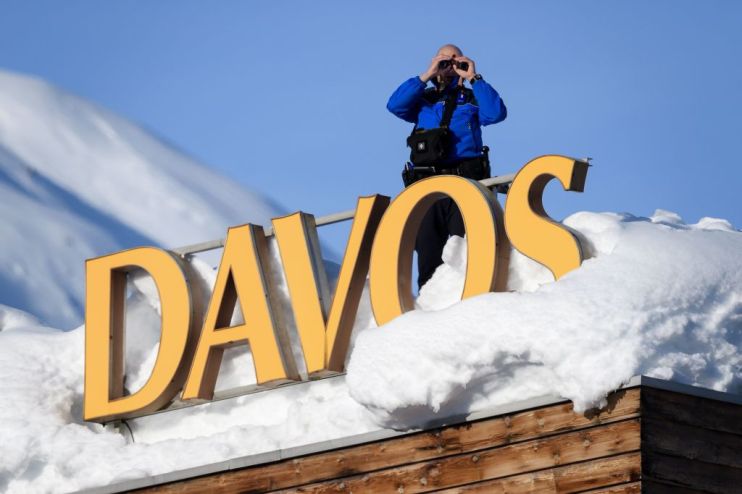Move over, ‘Davos Man’, climate is the big issue this year

It’s that time of the year again: policymakers, politicians, bankers, activists, journalists, and a swathe of cameras are descending upon the snowy peaks of Davos for the World Economic Forum (WEF).
Once branded the playground for the elite, epitomised by the stereotypical champagne swashing “Davos Man”, this year the gathering ostensibly seems to be morphing into one epitomised by a “Davos Everyone”.
This year’s theme is much more inclusive: “Stakeholders for a Cohesive and Sustainable World.” Headliners include President Donald Trump and Chancellor Angela Merkel, plus one new addition: Greta Thunberg, the teenage activist who travelled around the world in 2019, warning about the perils of climate change.
A global risks report published by WEF last week concurred with her warnings. For the first time in the survey’s 10-year history, the top five global risks in terms of likelihood were environmental.
But are policymakers listening?
In August last year, the US Business Roundtable published a new statement on the purpose of a corporation. The letter was signed by 181 chief executives of some of the largest American companies, including JP Morgan, Johnson & Johnson, and Ford, which committed to delivering value for all stakeholders (such as communities, employers, and suppliers), not just to company shareholders.
More recently, Microsoft, the tech giant boasting a valuation north of a trillion dollars, last week announced plans to become carbon negative by 2030, and then go beyond that by aiming to remove all the carbon it has emitted since its inception in 1975.
This has distinguished it from other businesses which have so far set carbon reduction targets, but not carbon “negative” ones.
Larry Fink, the chief executive of BlackRock, the asset management firm which looks after nearly $7 trillion in assets, also made waves last week by announcing that his company would start redirecting its investments away from fossil fuel businesses — a move that one could describe as seismic for the financial world.
“I believe we are on the edge of a fundamental reshaping of finance,” Fink wrote.
Beyond large influential corporations, central banks are also looking at incorporating climate change into their economic analysis.
As of 2021, the Bank of England will be introducing a climate change stress test into its financial stability report. Meanwhile, the European Central Bank, with Christine Lagarde at the helm, has also posited including climate change in its upcoming strategic review.
Then last week, the EU published further details on the European Green Deal, presenting a plan to attract €1 trillion of private and public investment over the next decade.
One thing is clear from all these developments: the spotlight is now firmly on companies’ business practices, and many key players are beginning to understand the need for reform (even if the incentive is commercial, the sceptic in me murmurs).
It is now up to us to hold them accountable.
We may look back at the beginning of 2020 — which started out with devastating Australian wildfires — as an inflection point for conversations about the climate that are happening in Davos, in the boardroom, and at a national level.
Clearly, the champagne can wait.
Sign up to City A.M.’s Midday Update newsletter, delivered to your inbox every lunchtime
Main image credit: Getty